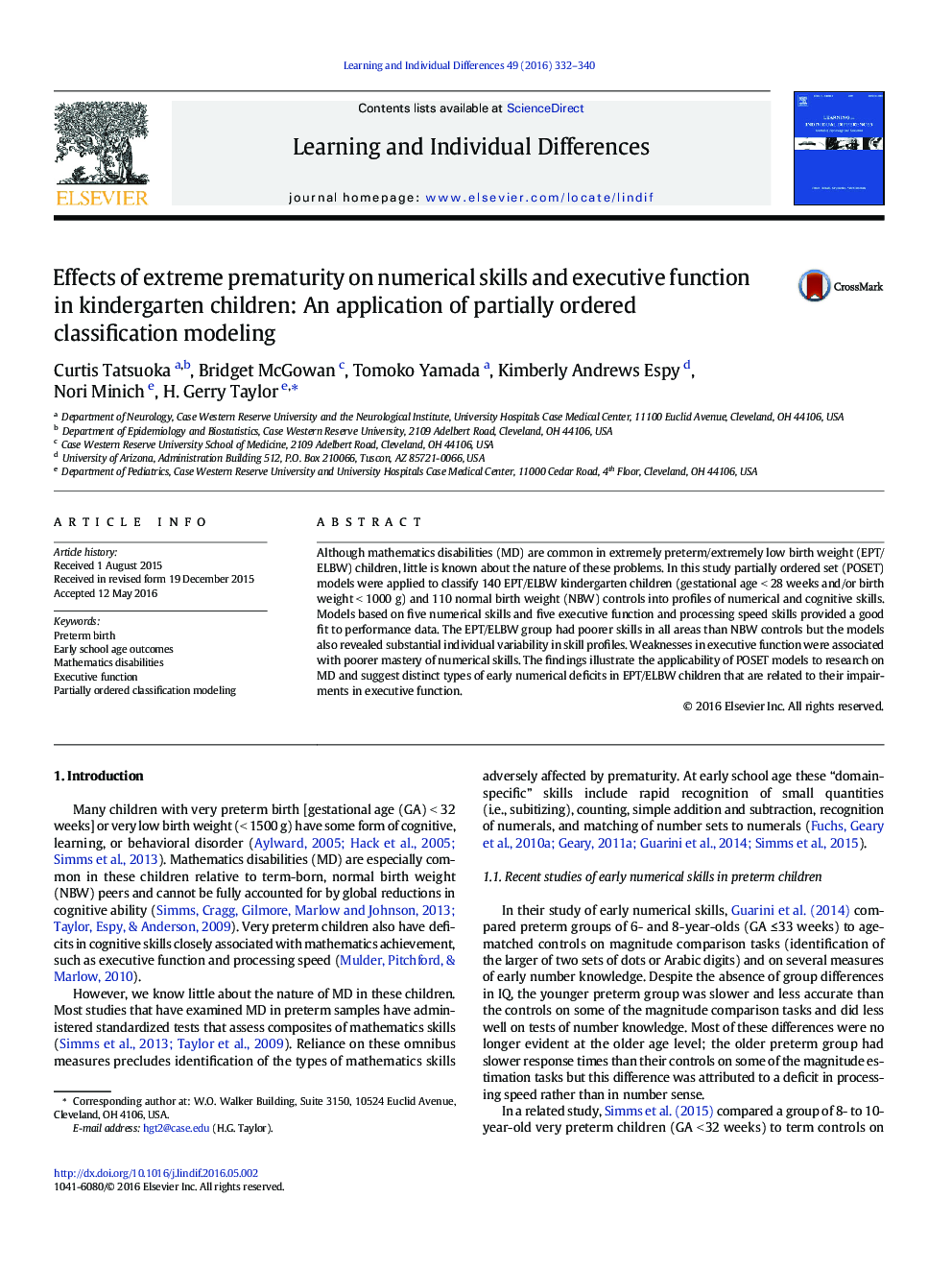| Article ID | Journal | Published Year | Pages | File Type |
|---|---|---|---|---|
| 6844803 | Learning and Individual Differences | 2016 | 9 Pages |
Abstract
Although mathematics disabilities (MD) are common in extremely preterm/extremely low birth weight (EPT/ELBW) children, little is known about the nature of these problems. In this study partially ordered set (POSET) models were applied to classify 140 EPT/ELBW kindergarten children (gestational age < 28 weeks and/or birth weight < 1000 g) and 110 normal birth weight (NBW) controls into profiles of numerical and cognitive skills. Models based on five numerical skills and five executive function and processing speed skills provided a good fit to performance data. The EPT/ELBW group had poorer skills in all areas than NBW controls but the models also revealed substantial individual variability in skill profiles. Weaknesses in executive function were associated with poorer mastery of numerical skills. The findings illustrate the applicability of POSET models to research on MD and suggest distinct types of early numerical deficits in EPT/ELBW children that are related to their impairments in executive function.
Keywords
Related Topics
Social Sciences and Humanities
Psychology
Developmental and Educational Psychology
Authors
Curtis Tatsuoka, Bridget McGowan, Tomoko Yamada, Kimberly Andrews Espy, Nori Minich, H. Gerry Taylor,
